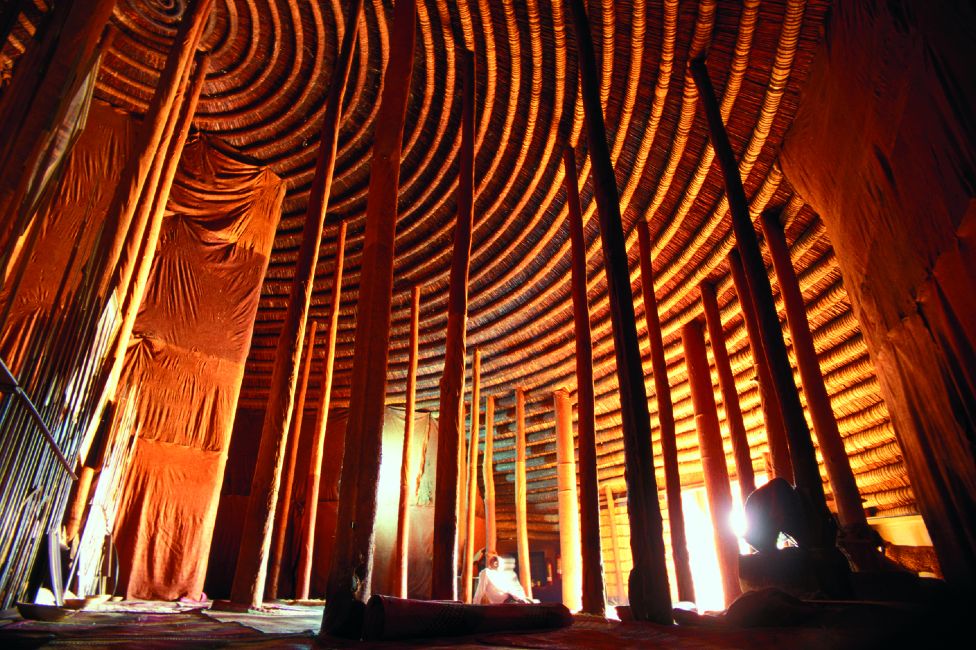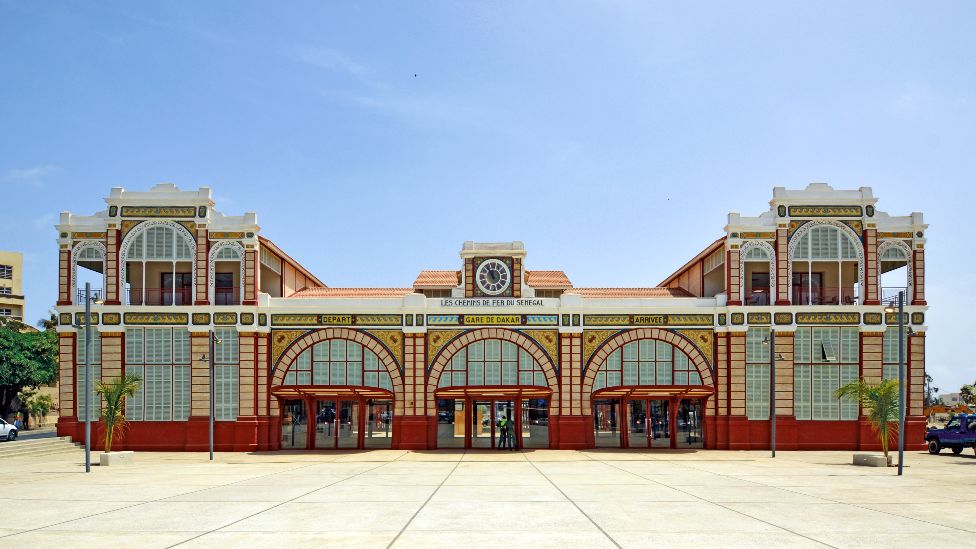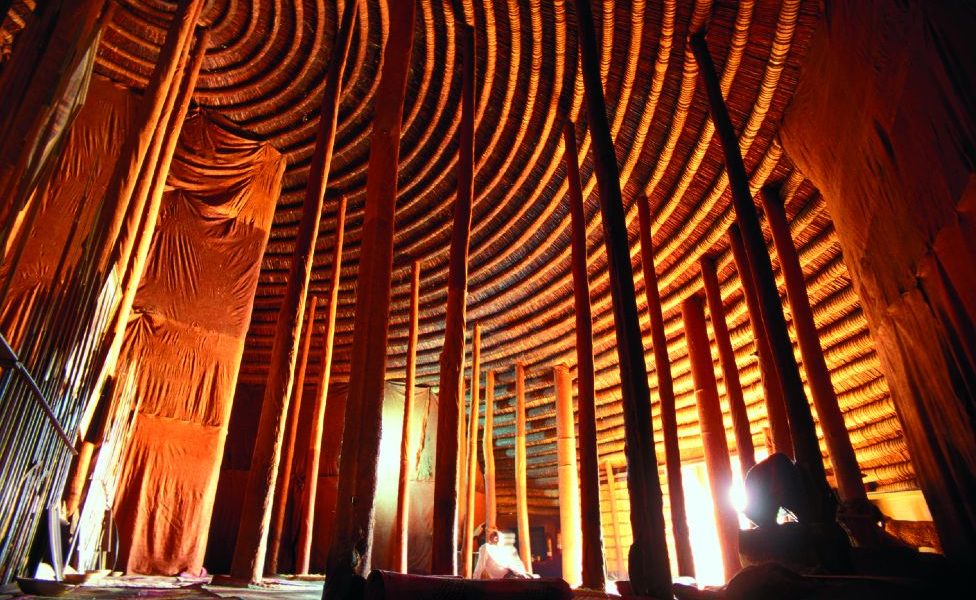Kasubi Tombs, Uganda – built in 1882
Covering hectares of agricultural land in Uganda’s capital, Kampala, the Royal Complex at Kasubi is the burial place of monarchs of the Buganda Kingdom. It was predominantly built from wood and other organic materials. The interior is designed to replicate a sacred forest and is topped with 52 circular rings to represent each of the 52 Buganda clans.
Livingstone Mukasa, who was born in Uganda, visited the tombs for the first time when he was 10 years old. “It was stunning,” he told the BBC. “Not just the scale of it, but the entire grandeur of the building.

“Kasubi Tombs was constructed in the late 19th Century before the introduction of modern materials, using traditional centuries-old methods. I felt that the building had a presence. When you were inside it, it dominated you.”
According to BBC News, Africa’s iconic, innovative and historic architecture are below;
Africa’s iconic architecture in 12 buildings
1) Kasubi Tombs, Uganda – 1882
2) Lideta Market, Ethiopia – 2017
3) Hikma Complex, Niger – 2018
4) Maropeng Visitors’ Centre, South Africa – 2006
5) Pyramids of Meroë, Sudan – 300BC
6) Basotho Houses, Lesotho – date unknown
7) Kenneth Dike Library, Nigeria – 1954
8) Great Mosque of Djenné, Mali – 13th Century
9) Palace of Emperor Fasilides, Ethiopia – early 17th Century
10) Dominican Chapel, Nigeria -1973
11) Great Mosque, Benin – 1912-1935
12) Mapungubwe Interpretation Centre, South Africa – 2009
While the pyramids of Egypt are recognised around the world, much of Africa’s architecture remains unknown – something architects Adil Dalbai and Livingstone Mukasa hope to change.

They are part of the team that has recently published the seven-volume Architectural Guide Sub-Saharan Africa. Their in-depth study encompasses buildings from earlier eras, the colonial period – like the recently renovated railway station (above) built in Senegal’s capital, Dakar, in 1910 – to more modern masterpieces.
The Tombs of the Buganda Kings at Kasubi were inscribed on the UNESCO World Heritage List in 2001. After the partial destruction of the site by fire on 16 March 2010, the site was placed on the List of World Heritage in Danger.
The official ceremony to launch reconstruction work also provided an opportunity for a meeting of the technical advisory mission and other experts to review the master plan for the work, as well as disaster mitigation plans, research on practices and knowledge associated with traditional architecture, and capacity building.
The Kasubi site dates back to the 13th century and bears eloquent witness to the living cultural traditions of the Baganda. It houses the tombs of the four Kabakas (Kings) and is the most active religious site in the Kingdom, attracting some 30,000 visitors annually.
Built in the finest traditions of Ganda architecture and palace design, it reflects technical achievements developed over many centuries. The built and natural elements of the tombs are charged with historical, traditional, and spiritual values.
Such architectural structures, and the traditional practices that are associated with the site, are one of the exceptional representations of the African culture that depict a continuity of a living tradition.
The site’s main significance lies in its intangible values of beliefs, spirituality, continuity and identity of the Baganda people. The site serves as an important historical and cultural symbol for Uganda and the East Africa region.
Read about reconstruction of the Tombs of the Buganda Kings begins
Read more about full list of Africa’s iconic architecture in 12 buildings including Uganda’s Kasubi Tombs first on this list of 12 African iconic buildings.
Tombs of the Buganda Kings at Kasubi Tours & Tickets
Explore Buganda beginning with a visit to the Kasubi tombs (royal burial ground) you will be welcomed by the descendants of the king’s wives who take care for the site. Book Tours and Tickets with Free Cancellation from Responsible Tourism Company.


16 Replies to “Uganda’s Kasubi Tombs first on this list of 12 African iconic buildings”
17/11/2024
17/11/2024
01/02/2025
01/02/2025
01/03/2025
13/03/2025
14/03/2025
17/03/2025
18/03/2025
24/03/2025
26/03/2025
26/03/2025
01/04/2025
06/05/2025
21/05/2025